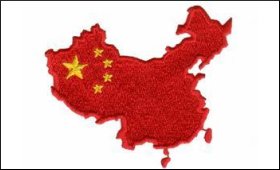|
|
|

|
Aggressive China now getting worried over adverse fallout from world fraternity
|
|

|
|
| Top Stories |
 |
|
|
|
IANS | 09 Nov, 2020
Chinese President Xi Jinping has
been talking tough and flexing military muscle on the international
stage in recent months but now he appears to be worried over the adverse
fallout of his belligerent foreign policy on the economic front.
The
US ban on hi-tech components such as processor chips to leading
companies like Huawei has had a crippling effect on the Chinese economy.
Several multinational companies (MNCs) are also chalking out plans to
pull out investments from China which would slow down both growth and
access to the latest technology for the communist country.
Addressing
the International Import Expo in Shanghai this week, Xi said: "China
wanted to make its market the world's market as it moved towards a new
dual circulation' economic model. It will reduce the country's import
restrictions, treat all companies registered in China equally and sign
more trade agreements with other countries."
A Reuters report
from Shanghai quoted him as saying that the world needed to work
together, stand against unilateralism and not "throw punches" at each
other as the global economy faced many challenges, especially with the
pandemic.
This concern also came to the fore at the four-day
meeting in Beijing of the Central Committee of the Chinese Communist
Party headed by Xi himself, which concluded in the last week of October.
China
will promote "technological self-reliance" under the latest five-year
development plan but will open further to trade, Han Wenxiu, a key
adviser to Xi, said at a news conference after the meeting.
"China
will provide countries around the world with larger markets and more
opportunities," an AP report from Beijing had quoted Han as saying.
According
to Chinese media reports, Han also said: "As the two largest economies
in the world, the economic ties between China and the US are determined
by the complementary of their economic structures and the openness of
the global economy. A complete decoupling between the two countries is
unrealistic and will not benefit either nation or the world. China will
promote high-level opening-up to provide more opportunities for the rest
of the world."
The comments reflect the serious concern in
China's top leadership as other countries are following the US in taking
steps to disengage with the Chinese economy. An isolated China wants to
attract more foreign investment in high-end manufacturing and is
desperate to prevent the exodus of multinational companies.
China
has developed good technology and industrial base of its own through
unscrupulous industrial espionage and reverse engineering in brazen
violation of international laws on intellectual property rights.
However, the country still lags in crucial areas such as processor
chips. The democratic world is hitting back by cutting off this supply
chain.
Xi's "internal circulation" strategy discussed at the
central committee meeting aims to depend mainly on the domestic market
for the country's development, but at the same time it says this will be
supported by "external circulation".
He wants to leave the door open for much-needed foreign investment and overseas markets to fuel China's economic growth.
However,
analysts opine this is not likely to happen as matters have gone too
far and China stands alienated in the world. With the US decoupling from
the Chinese economy, other countries have also stepped up their plans
to scale down economic engagement with the dragon. Japan, for instance,
has started offering subsidies to its companies to shift their
production lines out of China.
China had a dream run on the
economic front as it succeeded in nearly doubling the size of its
economy over the last 10 years with its GDP now exceeding a staggering
$14.92 trillion this year. This was achieved through the use of
technology and investments from the advanced countries to establish the
world's biggest supply chain for manufacturing goods. These commodities
were then exported to these very countries to rake in huge profits.
The
flip side of the thriving economy is that it has enabled authoritarian
China to modernize its military base into a formidable juggernaut that
pushes its coercive foreign policy aimed at establishing its hegemony
around the globe. An ambitious Xi is in fact out to change the
international order to establish China as a superpower with a blue water
navy, powerful air force and a huge arsenal long range ballistic
missiles.
The communique issued after the Communist Party's
central committee meeting also states that China would strengthen
national security capabilities and maintain "strategic composure" in the
face of newly emerged challenges and conflicts internationally. Defence
capabilities would be beefed up in line with the economy.
In the
last six months an arrogant China has proved that it only believes in
having its own interests and not friends as a result of which most
countries don't trust the leadership any more. They have veered around
to the view that their companies should not have invested in China in
the first place as they have ended up creating a monster.
|
|
|
| |
|
|
|
|
|
|
|
|
|
|
|
|
|
|
| |
| Customs Exchange Rates |
| Currency |
Import |
Export |
US Dollar
|
84.35
|
82.60 |
UK Pound
|
106.35
|
102.90 |
Euro
|
92.50
|
89.35 |
| Japanese
Yen |
55.05 |
53.40 |
| As on 12 Oct, 2024 |
|
|
| Daily Poll |
 |
 |
| Do you think Indian businesses will be negatively affected by Trump's America First Policy? |
|
|
|
|
|
| Commented Stories |
 |
|
|
|
|
|
| |
|